
Discover more from Weapons and Strategy
One of my readers took note that I was wrong about Prigozhin.
I had argued that Prigozhin was no longer the leader of Wagner and had been sidelined and was missing.
But I was not right, if the news reports that Prigozhin has surfaced in Belarus are correct.
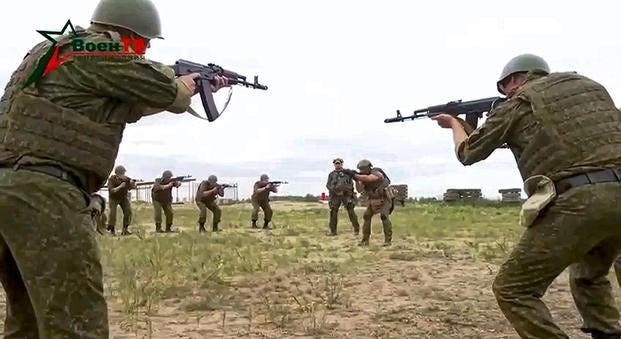
The official Russian press is entirely silent on the matter, so what we have to go on is a brief statement attributed to Prigozhin and a very fuzzy video of Prigozhin welcoming the Wagner troops, that could be anyone but is said to be Prigozhin.
Presumably these troops arriving in Belarus were part of a large convoy that traveled from Russia last week.
I am working on the assumption that the Prigozhin statement and the video are real and that Prigozhin is back in command of Wagner forces in Belarus.
The man who at one moment was seen as a traitor, is now back in business.
There may be good reason for Wagner forces in Belarus, as the authorities there are keenly worried that Poland may launch an attack on the border in an effort to split Russian army forces in Ukraine. The appearance of Wagner troops in Belarus appears to checkmate any idea of a Polish attack.
My good friend Larry Johnson has the opinion that the Prigozhin affair was contrived and that Putin, the GRU (Russia's military intelligence) worked together to expose Western intelligence meddling in Russia and to identify disloyal military leaders. This argument fits with unconfirmed stories that as many as 16 Russian military leaders already have been purged.
When you deal with Russia you always have to try and discern what is real from what is fake. Sometimes in Russia this is called Matryoshka, named after the famous Matryoshka dolls that feature one doll inside another. I keep one that I picked up a long time ago when Yeltsin was Russia's President.
The problem with the conspiracy theory is that it was hugely risky for Putin. There are still many questions.
Why did Putin reach out to his pal in Belarus, Alexander Lukashenko, to help broker a deal with Prigozhin? Or, did Lukashenko actually approach Prigozhin and then involve Putin?
Why did Putin make a deal with Prigozhin that, while halting the coup operation, left Prigozhin in a powerful and dangerous position? Similarly, why did Putin call it an insurrection and traitorous, after the deal was struck, and then reverse course again if Prigozhin is back in operation in Belarus?
How come the army did not send forces to Moscow to block Prigozhin? In fact it was the FSB, the police, and a Chechen unit that came to the rescue of Moscow.
After the deal brokered by Lukashenko, the Russian authorities began cracking down on Prigozhin's holdings. The raid on his mansion in St. Petersburg was filmed and broadcast in Russia in an effort to discredit him. At the same time, Prigozhin's social network, which is extensive, was allegedly taken over by the authorities. Prigozhin lost his multi-billion dollar food and provisions contract with the Russian army. It was reported that Prigozhin's operations outside of Russia, particularly in Africa, were going to be replaced by regular Russian army personnel (which led to strong complaints from the leader of the Central African Republic and others).
Moscow backed down on replacing Wagner forces in Africa. Just recently there was a "normal" rotation of Wagner personnel.
Who actually controls Wagner also isn't at all clear. Putin had selected Andrei Troshev (Grey Hair”) to head Wagner, something he made clear on June 29th when he met with Wagner commanders, including Prigozhin. Is Troshev in charge of Wagner forces in Belarus, as well as in Russia and Ukraine? The answer is, we don't know. If Troshev is in charge, and Prigozhin is in Belarus, what is his role? If the news reports are accurate, is Prigozhin now in overall command of Wagner forces in Belarus, but does that extend to Russia and Ukraine?
Then there is the problem of General "Armageddon" Sergey Surovikin, who still is missing. There is an unconfirmed rumor that he is going to meet with Putin this week. The issue with Surovikin is whether he was connected to Russian army leaders who supported a coup that would replace Chief of the General Staff Gerasimov and Defense Minister Shoigu. We don't know what the Kremlin knows, or doesn't know, about any of this.
Finally there is a potentially related issue of the apparent dismissal of General Ivan Popov, commander of the 58th Combined Arms Army fighting in Zaphorize, Ukraine. Popov was a popular and effective commander, and his success in pushing back the Ukrainian offensive in Zaphorize should have made him a hero. He was fired when he openly complained about "the lack of counter-battery combat, the absence of artillery reconnaissance stations and the mass deaths and injuries of our brothers from enemy artillery.”
Prigozhin said a lot worse than Popov, but he was never fired or criticized or arrested. In fact, when he voiced many of his complaints the army leadership was forced to fix some of the problems and provide support, whether it was shortages of ammunition and supplies, or protecting the flanks of Wagner forces fighting in Bakhmut.
(A Telegram channel described as “close to Prigozhin” has released figures on Wagner losses in Ukraine. According to this channel, many of the killed were recruited from Russian prison camps.)
It seems that Popov being fired, in the middle of the war, has more to do with extreme nervousness in the army leadership about who is trustworthy and who is not, then it is about Popov's complaint. One is reminded of George Patton's replacement in the Second World War, in part for slapping a wounded soldier, but in reality because he had become a nuisance. After Normandy Patton would be brought back, mostly because he was a great military leader and, despite his foibles, was loved by his troops and was a fearless, effective commander. What will become of Popov we do not know.
It remains unclear how serious the situation is for Putin. If the Prigozhin affair was a charade, what could be gained by it at the height of the Ukrainian offensive? Unless, of course, the army wanted out of the war, not because they were winning or losing, but because the human cost of the war was too painful. Many senior officers on the Russian side have been killed in the conflict. Many soldiers have been killed in battle. Despite various Kremlin opinion polls, among the educated elite of the country there must be great unhappiness over the war which certainly would spill over into the military leadership ranks.
The other factor, rarely accounted for, is that Russia's elite classes have been cut off from the West and, in a number of high profile cases, have lost their property abroad thanks to western sanctions. These seizures on the one hand, and travel and banking restrictions on the other, must have caused great unhappiness among the special group previously rewarded by Putin for their loyalty. When they compare Ukraine to their personal fortune, they naturally favor their personal fortune, if they still have one.
Russia has always depended on its elites who are generously rewarded for loyalty to the government. If the elites defect, then Putin faces a nearly insurmountable problem staying in power.





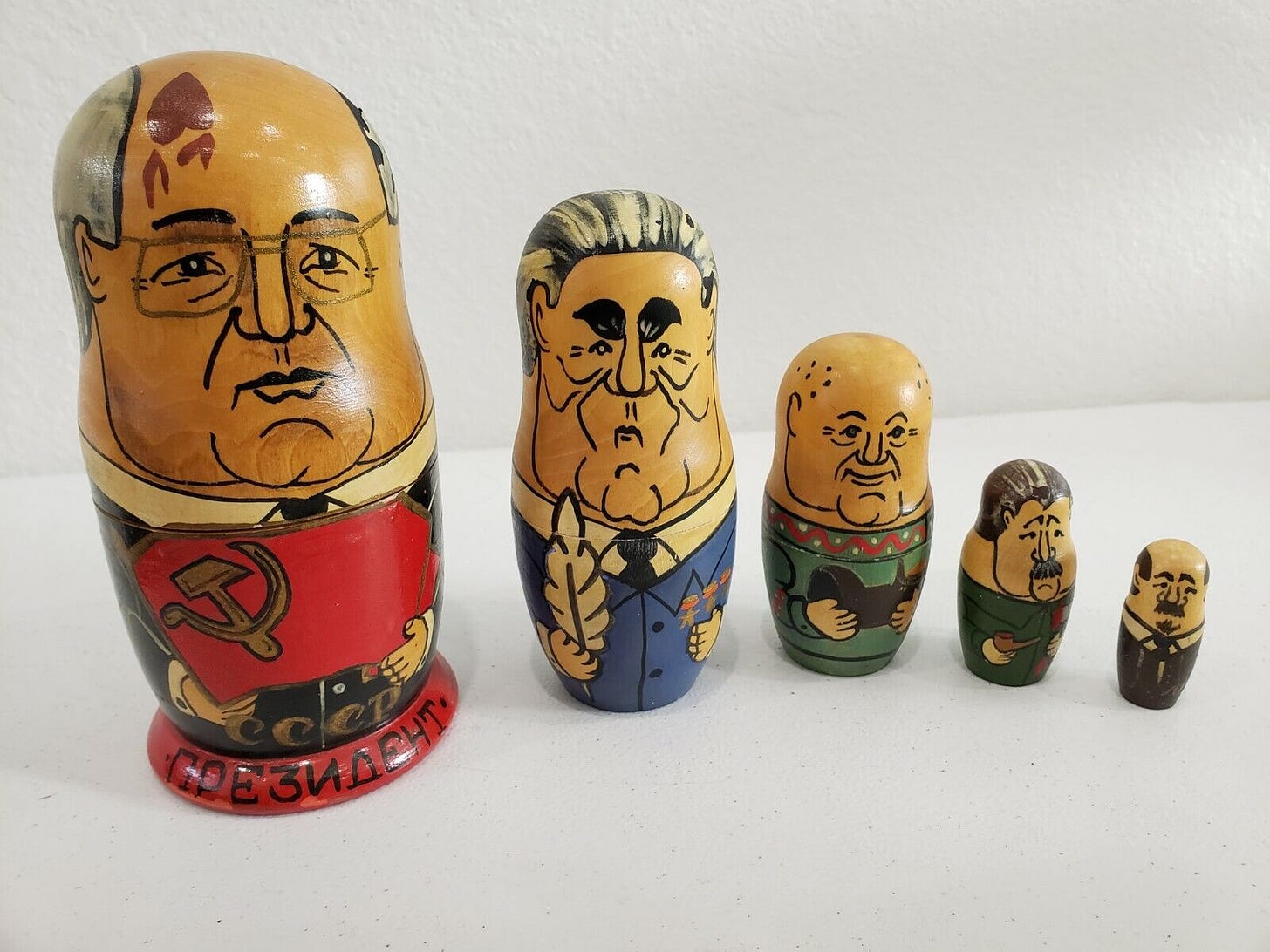
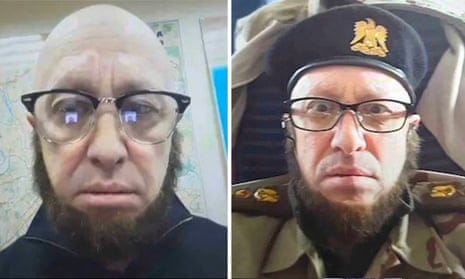
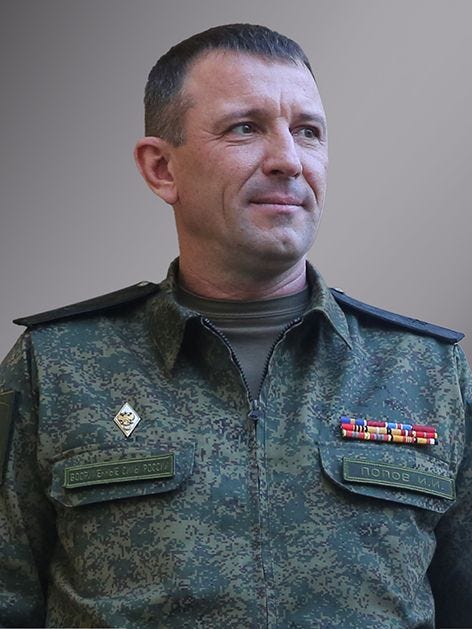





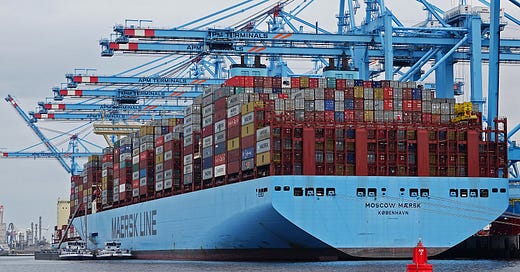

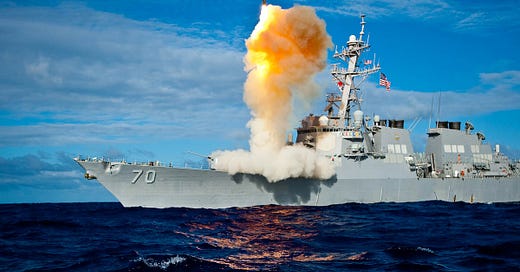

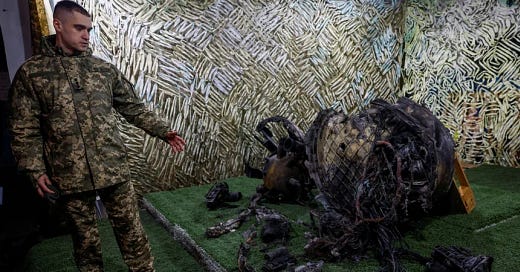

The whole affair, as portrayed by the western media, follows rumors that fit an agenda rather than facts that tell the truth. The facts are that the Russian MOD wanted Prigozhin out of Ukraine and they got Prigozhin out of Ukraine. The fact that he and his mercenary army had been regarded as super heroes in the war posed a dilemma for Putin; how cold he explain them deserving the fate of traitors when they had proved to be patriotic heroes? Could have consequences.
Take a losing ituation and turn it into a "win-win" situation. Putin turned pragmatic and used Prigozhin' patriotism to elevate the mercenary army into a new and valuable defensive position in Belarus, which is a soft underbelly for NATO forces.
Maybe we'll never know for sure the real story of the Wagner/Progozhin incident, but its certainly fascinating. Mr. Bryen, in your previous post you had links to 2 videos by Wagner commanders. I thought what they had to say was very interesting. Maybe you are right about Alexander Lukashenko - he may have his own reasons for becoming involved in the Wagner saga. Yesterday I watched a live stream on The Duran youtube channel with Dmitry Mironchik - the Belarussian ambassador to Norway & Sweden. He did a deep dive into why Belarus deems both NATO and Poland a valid and direct threat to Belarus, why they decided to host Russian nukes, their economy & how they realize it would be detrimental to growth to spend more GDP on militarizing, etc. It was very interesting. As a casual plane geek, I've seen a shift in military aviation traffic (US/UK/NATO) over the past few months. Traffic is much greater in the Baltic area now; Poland & Estonia especially; lots of equipment probably being moved. A US Navy Poseidon out of Iceland regularly flies just off the coast of Kaliningrad & sometimes even flies in circles around Kaliningrad for hours. Could be posturing/intimidation, or maybe the vultures are really circling. Either way, maybe the whole Wagner drama was an opportunity for Belarus - and the Kremlin - to end up with some experienced fighters close by. I read that about 5 columns of Wagnerites, about 100 vehicles each made it to Belarus this week.